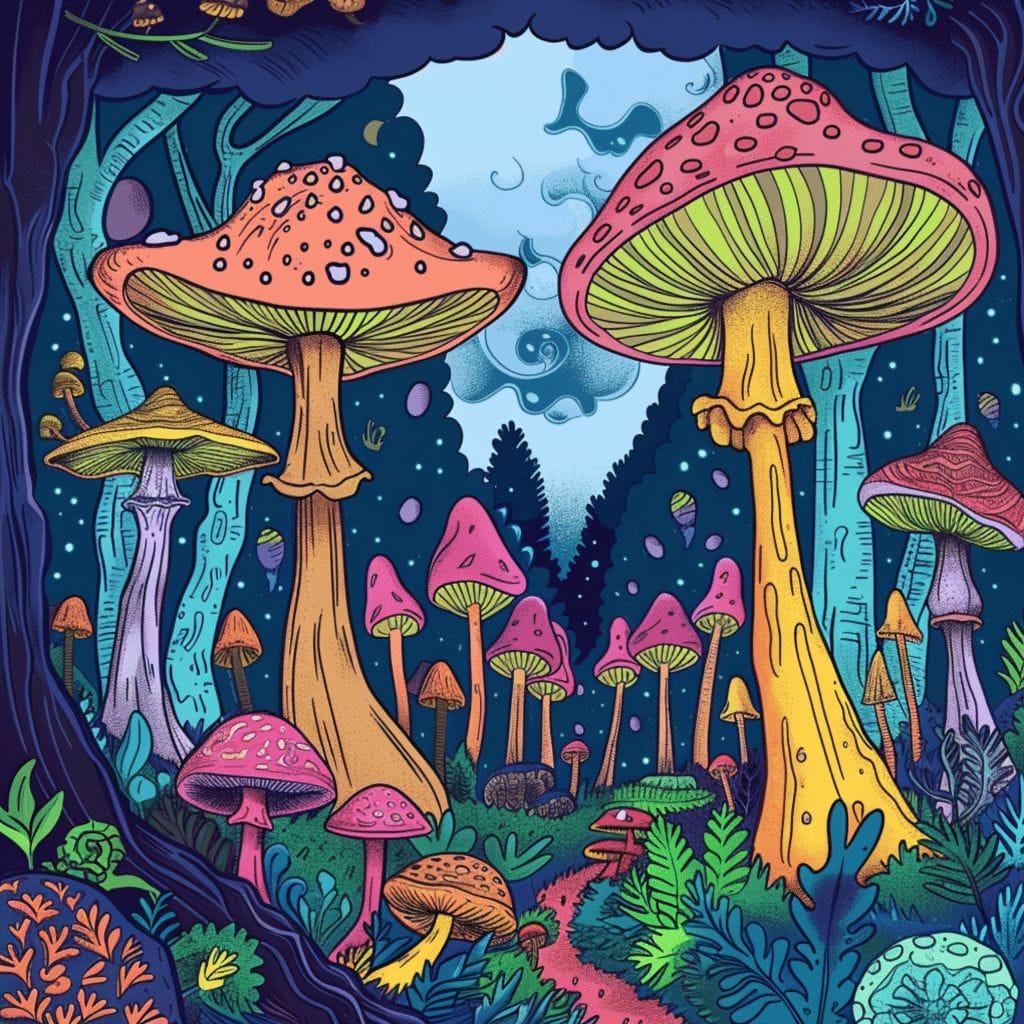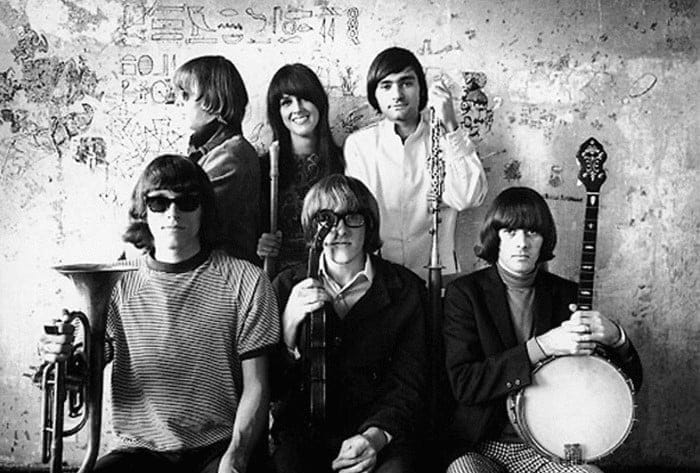I’ve said it in countless blogs before and I’ll say it here again, Alice’s Adventures in Wonderland has surpassed popular culture and has reached a different level - it is culture. We use Alice-isms such as, “down the rabbit hole” or “wonderland” in our everyday language without even thinking of the source material. Due to the cultural impact that Lewis Carrol's novel has had and continues to have on the world, it should be a surprise to no one that there have been a lot of Alice references in media. From art, such as Salvador Dali’s illustrations of Wonderland, to films like The Matrix, to songs like Wonderland by Taylor Swift. Alice is everywhere. But I won’t talk about any of those media pieces today. No, today I’m going to be talking about arguably the most recognizable piece of Alice-inspired pop culture that has ever been made. Today I’m talking about Jefferson Airplane’s “White Rabbit”.
For those of you who don’t know the song by name, you still know the song. You’ve definitely heard it. Have you seen any movie ever? Ever watched TV? Great, you’ve heard it. The song is used so much in film and television that if I were to list all movies and TV shows it’s in, you wouldn’t be able to read this blog as Frank wouldn’t be able to afford it. I think I found a good way to sum up how many credits it has. The song is featured in both the Oscar-winning Platoon, a powerful and harrowing anti-Vietnam war film, as well as the non-Oscar winning The Secret Life of Pets 2, which needs no introduction as the title is quite self-explanatory.
What gods amongst men could have created such a lasting piece of media? Who are these modern-day Prometheus… Prometheses? Promethei? Regardless, Jefferson Airplane was an American rock band that was formed in the 1960s in San Francisco. Like many 60’s rock bands from San Francisco, they partook in psychedelics. The writer of “White Rabbit,” Grace Slick, admitted that she came up with the song while hallucinating on LSD. Which I find pretty unfair because the one time I took acid, I didn’t come up with a hit song or create Apple computers or cool drawings. No, I just sat in the fetal position quite positive that what I had just done to my brain was permanent. While the permanence of the self-inflicted damage is up for debate, this song's references to illicit substances are not. The line “Feed your head” is about expanding your mind with psychedelics along with the suggestion to read more books. Interestingly, this song is one of the first hit songs to reference and suggest the partaking of illicit substances without raising the suspicions of censors.

Grace Slick often read both Alice's Adventures in Wonderland and Through the Looking-Glass as a child and found the books had a lasting effect on her. She enjoyed the fact that Alice was the rare children’s book that did not have a prince charming saving the heroine, that it followed a little girl in a strange land being driven forward by her curiosity which, to Grace, was represented by the White Rabbit. She thought that the message of the story could be taken and used by women to push their own agenda. I believe that during the ’60s, pushing an agenda was not thought of as an annoying thing to do.
Almost every line in “White Rabbit” references the world Lewis Carroll had created. Starting with the first verse, “One pill makes you larger/and one pill makes you small/and the ones your mother gives you/don’t do anything at all/Go ask Alice/When she’s ten feet tall.” I mean, besides the one line about mothers giving placebos, which might be about how parents are often thought of as not knowing what is going on in teens and not having the right “medicine” for them. I don’t know, I’m not Googling it. The first verse is literally Alice’s first action in Wonderland.

The next verse, “And if you go chasing rabbits/and you know you’re going to fall/Tell ‘em a hookah-smoking caterpillar/Has given you the call/Call Alice/When she was just small.” I’m not going to point out the references in this verse because, well you know them, but I believe this verse is about going on a metaphorical adventure and giving advice on what to do if you think you would fail. Think of Alice and allow your curiosity to drive you along.
“When the men on the chessboard/Get up and tell you where to go/And you’ve just had some kind of mushroom/ And your mind is moving low/Go ask Alice/I think she’ll know.” The third verse might be about people telling you what to do or how to be. The line about mushrooms and a low mind is probably just about taking psilocybin mushrooms and these people bringing your trip down. Then for the second time, telling the listener to, “ask Alice” which to me means that you should follow your curiosity, but in this instance, if you were on a hallucinogen, allowing your curiosity to pique is actually good advice for someone having a bad trip.

The final verse, “When logic and proportion/Have fallen sloppy dead/And the White Knight is talking backwards/And the Red Queen’s off with her head/Remember what the dormouse said/Feed your head/Feed your head.” Okay, so this verse is about how if the world has gone crazy the best thing you can do to remedy the situation is to “feed your head,” a.k.a. learn, be it from books or illicit drugs. Grace Slick's words, not mine.
This song is essentially a retelling of Alice’s Adventures in Wonderland where the story beats of the book and the metaphorical beats in the song actually line up quite well. This might have something to do with the staying power of the song. Perhaps Alice’s Adventures in Wonderland’s staying power rubbed off on Jefferson Airplane's “White Rabbit”. With references to the White Rabbit, the Blue Caterpillar, Eat Me and Drink Me, The White Knight, and of course the Red Queen, it’s easy to see how this is a quintessential piece of Alice media.

The question still remains though, why is this song everywhere? I’ve come up with a theory. Along with the song's catchy tune and well-written lyrics, the meaning of the song and its trippy vibe slot in perfectly to many different situations. Any time a character makes a big change in their life starts an adventure, or stops taking their meds, this song fits. I’m ignoring people not even caring about the meaning of the song and just putting it in a scene where someone is doing drugs because yeah of course it fits there too.
Regardless if you like the song or not, there is no arguing that Jefferson Airplane’s “White Rabbit” is the quintessential piece of Alice media. It has staying power, it has infiltrated everything we know without us noticing, and people like to take acid and listen to it. Which is to say, it’s essentially a baby Alice’s Adventures in Wonderland. I like the song, but that might have to do with the fact that it played during Zach Snyder’s Sucker Punch, which is not my favorite movie but does hold a special place in my heart because it was the movie that was playing the first time I made out with a girl.

Jared Hoffman graduated from the American Film Institute with a degree in screenwriting. A Los Angeles native, his brand of comedy is satire stemming from the many different personalities and egos he has encountered throughout his life. As a lover of all things comedy, Jared is always working out new material and trying to make those around him laugh. His therapist claims this is a coping mechanism, but what does she know?